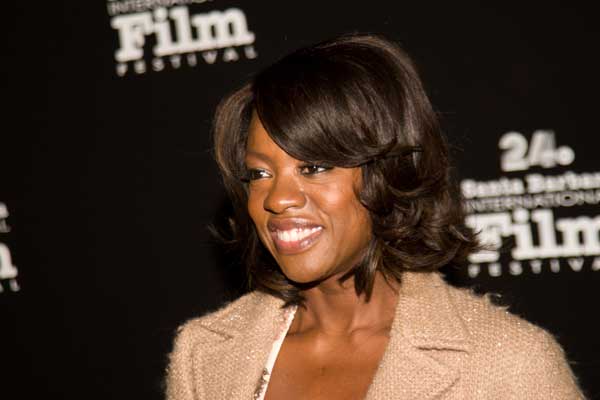As an Oscar, Emmy and Tony Award-Winning actress, Viola Davis is widely recognized as one of today’s most respected, gifted and sought-after actors. But at the end of the day, her passions lie more in matters of the heart and soul: loving her family, sharing her wisdom, spreading her message of hope and confidence. In the December/January issue of AARP The Magazine, the How to Get Away with Murder star sheds the many layers of Hollywood glamour and offers a rare look into her personal life.
In an in-depth interview with ATM, Davis reflects on her uphill journey to worldwide fame, noting that as the second youngest of six children, she once considered herself to be invisible. While she came from a family that struggled with poverty, alcoholism and violence, she still excelled academically and went on to pursue her acting career at the prestigious Julliard School. Today she holds the honor of being the first African American woman to have won the triple crown of acting.
Davis returns to the screen with her newest Netflix film, Ma Rainey’s Black Bottom, and is set to appear in two big-screen projects in 2021. Additionally, the actress has landed a film and television production deal with Amazon.
The following are excerpts from ATM’s December/January 2021 cover story featuring Viola Davis available in homes starting in December and available online now at www.aarp.org/magazine/.
On her character in the upcoming film, Ma Rainey’s Black Bottom:
“She was unapologetic about her sexuality, unapologetic in terms of her value [as a recording artist] and in terms of what she wanted, unapologetic about her blackness. I think today she would actually be considered a liberated woman in every way, a woman before her time—and that sometimes is a really slippery slope. You’re fighting a culture that devalues you, although in your heart and in your spirit, you know your worth.”
On the value of knowing your worth:
“When you look in the mirror and see that all your imperfections can be mixed with all the things that you actually do like about yourself—oh, my God! That’s everything.”
On creating a legacy:
“The problem is that you defined your life as the glass ceiling of making your life a success. And the glass ceiling is not success. It’s significance. It’s creating a legacy, creating a life that’s bigger than yourself.”
On the beauty in imperfections:
“My inner therapist—which is the best—said, ‘You’re good exactly the way you are. Your body has served you well. It’s healthy. It’s strong.’ In five minutes, I feel good.”
On her marriage to Julius Tennon:
“You realize when you chose your partner well, it’s not that you can’t live without them, you just don’t want to.”
On her faith:
“I am a God believer. I believe that sometimes you have to give it over to a higher entity, because sometimes I don’t have the answers and I’m never going to have them.”
—
Photo Credit: Terry Straehley / Shutterstock.com
